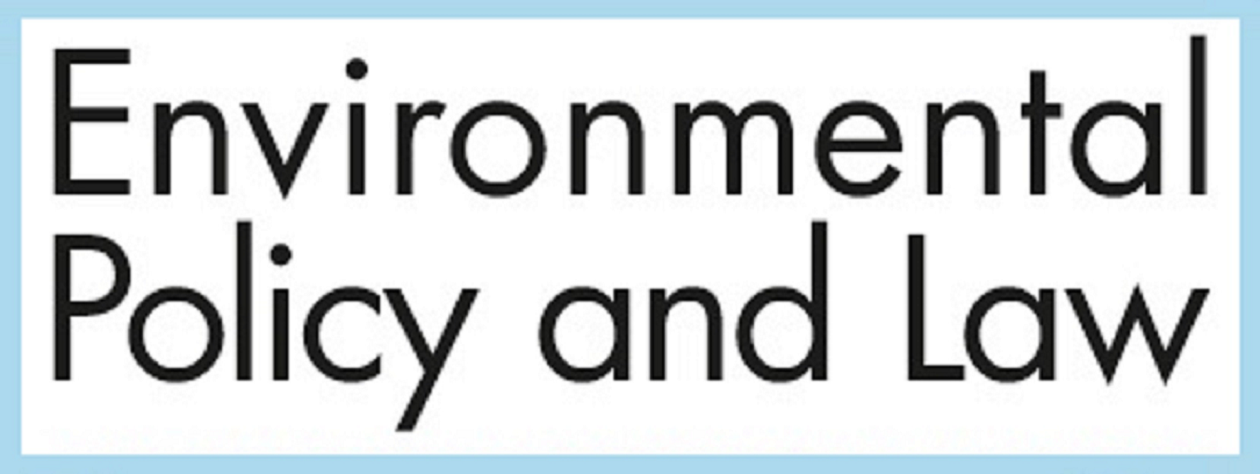EPL Subscribe to open
Introduction
Our mission as an independent, multinational scientific, technical, medical publisher is to make a significant and original contribution to a reliable scientific environment. As a result, we endorse the open access publishing model and uphold open access regulations.
However, given the scarcity of funding, especially in the social sciences and humanities, and the inequitable distribution of these limited funds, funding models that do not impose a financial burden on authors, in the case of article processing fees (APCs), should be considered. For Environmental Policy and Law (EPL) we found an appropriate model that aligns with this vision: the Subscribe to open (S2O) model.
The S2O model is a compelling option because it seeks to take what is good and working well in the current system and applies it to achieve a sustainable and more universal model of open access across publications and publishers. Because content selection by librarians plays an important role in the curation of content for researchers, we support approaches like S2O that preserve their role in the process in addition to intermediaries, such as subscription agents, who reduce the related (and considerable) administrative burden.
Subscribe to open
S2O is an alternative sustainable subscription model that converts scholarly subscription journals to open access one year at a time. Under this model institutions continue to subscribe to journals of value to their community, and if sufficient revenue is generated, the entire year's content will be published open access.
S2O allows institutions to direct funds through the same subscription channels routinely used to provide journal access to their own researcher community, while broadening the journals’ readership across a wider community as an open access publication. In addition, if an institution has already established open access funds to support transitional initiatives, then these funds may be used for this model.
Support the Subscribe to open model for EPL
Researchers can support the EPL-S2O initiative by contacting their libraries directly or filling out a recommendation form.
Any questions?
We welcome your feedback and any additional questions you might have. Please feel free to email us: sales@iospress.nl.
Subscription Information for EPL for 2024 can be found here at IOS Press.
For Librarians
Introduction
S2O is designed to enable a continuous and sustainable full transition to open access. It does so without charging authors for APCs, making articles immediately available. Librarians are directly involved through curation of open access journals that merit support, part of their traditional professional role.
By participating in this S2O model, institutions with requisite resources support making research openly available to their own and the larger community, including those with less resources. This enables librarians to help drive a more equitable sharing of the benefits of making scholarly outputs more widely available to the public in a more diverse publishing environment.
Researchers can support the EPL-S2O initiative by contacting their libraries directly or filling out a recommendation form.
Support subscribe to open
Ongoing support for EPL-S2O by current subscribers is as easy as renewing your subscription each year. A key consideration in this model is to make the library process as easy as possible. To do this, we work with our subscription agents to ensure that billing and renewals occur through existing subscription channels. We are happy to help at any point of the process: sales@iospress.nl.
For newly subscribing libraries that are interested in supporting EPL-S2O, the journal can be subscribed to through subscription agent using customary channels.
EPL-S2O pricing
The EPL-S2O model maintains IOS Press's editorial rigor, high production values, and robust online presence. The annual subscription fee continues to cover costs associated with journal production, from supporting the journal editors and their peer-review process, to conducting in-depth editorial oversight, typesetting, and online publication. In addition, print editions will continue to be produced for contributors and subscribers who choose to pay an additional printing fee. Access to EPL’s back volumes from 2022 and earlier are only available for libraries participating with S2O.
If libraries do not support Subscribe to open
This model relies on generating sufficient subscription revenue from existing and new subscribers, ensuring that the quality and quantity of open access publishing is not compromised. Therefore, IOS Press may need to switch to paywall subscriptions for EPL if not enough libraries join the S2O model. The current volume of the journal as well as earlier volumes will be made available to libraries who have renewed their EPL-S2O subscriptions or new libraries that have joined in support of this model.
Any questions?
We welcome your feedback and any additional questions you might have. Please feel free to email us: sales@iospress.nl
For Authors
Under the S2O model, your contribution to EPL will be published open access under a Creative Commons CC BY-NC 4.0 license, without the need for you or your funder to pay an article processing charge (APC). Costs for EPL-S2O are supported by subscriptions from participating libraries.
Under the S2O model, sufficient library support is required each year for a journal to remain open access. Therefore, your support and encouragement for your library's participation are important. You can contact your library directly by filling out a recommendation form.
Guidelines for submitting an article for EPL are unchanged.
If S2O open access is not achieved
The journal will continue to publish on an S2O basis as long as annual revenue targets are met through regular renewals. However, if not enough libraries are participating in the model, IOS Press may have to transition back to paid subscriptions to EPL. Should this occur, authors have several options for publishing their papers as open access. See here.
